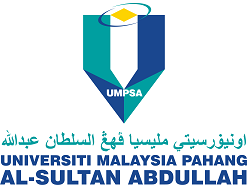THE CRITICAL REVIEW OF TRIPLE Ts CONCEPT AND ITS IMPLEMENTATION WITHIN THE NADHIYYIN EDUCATION (MULTI-CASE STUDY AT LP MA'ARIF PASURUAN)
DOI:
https://doi.org/10.15282/ijhtc.v9i1.10740Keywords:
Mbah Hasyim, Nahdlatul Ulama, Islamic education, Islamic valuesAbstract
The study aims to explore the triple t core values of Mbah Hasyim, one of founding fathers of the Nahdhatul ulama (nu), the biggest Muslim organization in Indonesia and even in the world. this research delineates about Mbah Hasyim’s core values into NU organization in a way to know positive contribution of Mbah Hasyim’s core values into peace education as well as the nation character building through education programs. as ulama Mbah Hasyim formulated three core t values derived from Islamic values, namely the 3 t's: Tasamuh,Tawassut (moderate), Tawazun. these triple t’s have become foundation for basic learning in nu education institutions around Indonesia. the purpose of this study is to elaborate such core values inspired by Mbah Hasyim into NU organization. the final objective of the research is to obtain clear and concise concept of Triple Ts in education specially to utilize them for instilling such (Islamic) values to students through character education program and peace education in Islamic worldview. therefore, the study used library research as the method for data collection. besides, the empirical evidence which are experienced by researchers used as primary sources in qualitative research method. the presence of researcher is necessary to enrich the collected data. the results shown that core values of Mbah Hasyim significantly have contributed to the life harmony, peace, togetherness and religious tolerant in Indonesia. Pancasila as a national philosophy accommodates any religious values that apply universally and most of the materials come from an Islamic perspective and the values of Triple Ts of Mbah Hasyim. the conclusion of this study is to bring this concept of Triple Ts of Mbah Hasyim into education program. thence, all school and other education institutions are encouraged to implement such triple T’s through character education program as well as peace education.
References
Aeni, A.N. (2014). Pendidikan karakter untuk siswa sd dalam perspektif Islam. Mimbar Sekolah Dasar, 1(1), 50-58.
Ali, I. (2021). Pembelajaran kooperatif (Cooperativelearning) dalam pengajaran pendidikan Agama Islam. Jurnal Mubtadiin, 7(1), 247.
Arifin, S., dan Zaini, A. (2014). Dakwah transformatif melalui konseling: Potret kualitas kepribadian konselor perspektif konseling At-Tawazun. Jurnal Dakwah UIN Sunan Kalijaga, 15(1), 137-156.
Nawafi, L., Uhbiyati, N., dan Sholihah, B. (2021). Peran Bu Nyai dalam meningkatkan mutu hafalan Al-Qur’an Santri Putri Pondok Pesantren Al-Hikmah Pedurungan Lor Semarang. Jawda: Journal of Islamic Education Management, 1(1), 56-65.
Purwanto, A., Nurjayadi, M., Suluya, R., dan Ichsan, I.Z. (2020). EM-SETS: An integrated e-module of environmental education and technology in natural science learning. International Journal of Advanced Science and Technology, 29(3), 7014-7025.
Jamaluddin, A. (2016). Membangun tasamuh keberagamaan dalam perspektif Al-Qur’an. Toleransi: Media Ilmiah Komunikasi Umat. 8(2), 170-187.
Nafis, A., Ramli, M.I., dan Anam, F.K. (2012). Risalah Ahlussunnah Wal Jama’ah dari pembiasaan menuju pemahaman dan pembelaan akidah-Amaliah NU, Cetakan pertama. Khalista: Aswaja NU Center, PWNU Jawa Timur, Surabaya, Indonesia.
Nikmah, F. (2018). Implementasi konsep At Tawasuth Ahlus-Sunnah Wal Jama’ah dalam membangun karakter anak di tingkat sekolah dasar. Jurnal Pendidikan Islam, 15(1), 79-92.
Nurhayati, N. H. (2021). Filsafat ilmu peranan filsafat ilmu untuk kemajuan perkembangan ilmu pengetahuan. Falasifa: Jurnal Studi Keislaman, 9(1), 161-175.
Purwanto, A. N. (2007). Administrasi dan Supervisi Pendidikan, Bandung: PT. In Remaja Rosda Karya.
Sabiq, S. (1994). Islam dipandang dari segi rohani, moral, sosial. Jakarta: PT. Rineka Cipta.
Sisdiknas. (2003). Undang-Undang Republik Indonesia nomor 20 tahun 2003 tentang Sistem Pendidikan Nasional. Sekretaris Negara. Sekretaris Negara Republk Indonesia.
Statistik, B. P. (2003). Statistik perdagangan luar negeri Indonesia. Jakarta: Badan Pusat Statistik.
Rubiyati, N. (2020). The character education based on local contents curriculum toward Madrasah Aliyah in Indonesia. Annals of the University of Craiova for Journalism, Communication and Management, 6, 75-104.
Zakiah D. (2004). Metodik khusus pengajaran agama Islam. Bumi Aksara, Jakarta, Indonesia.
Zionis, R.M. (2016). Fikrah Nahdliyah sebagai pondasi kehidupan berbangsa dan bernegara. Jurnal Pikir, 1483.
Downloads
Published
Issue
Section
License
Copyright (c) 2024 The Author(s)

This work is licensed under a Creative Commons Attribution-NonCommercial 4.0 International License.




